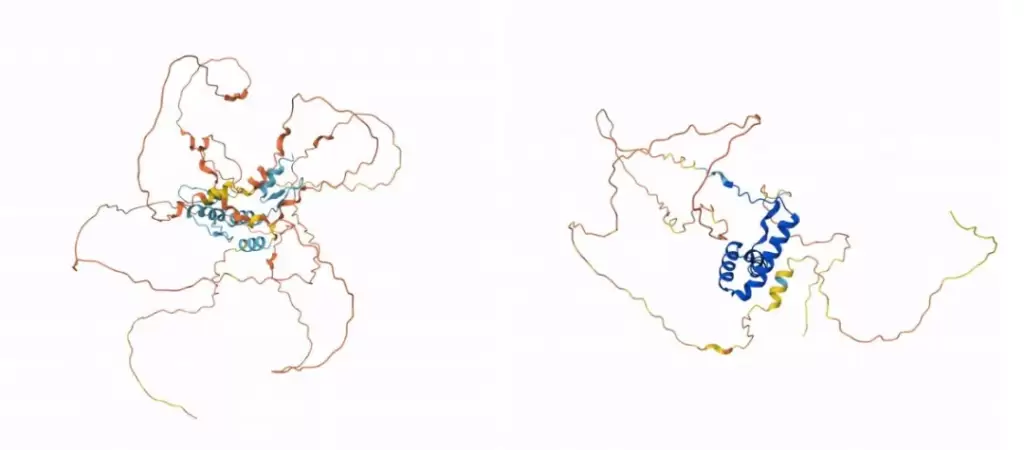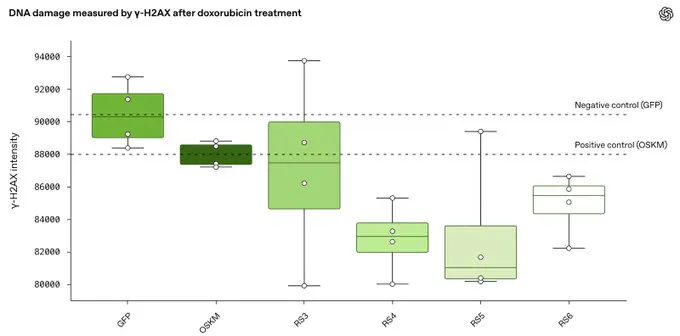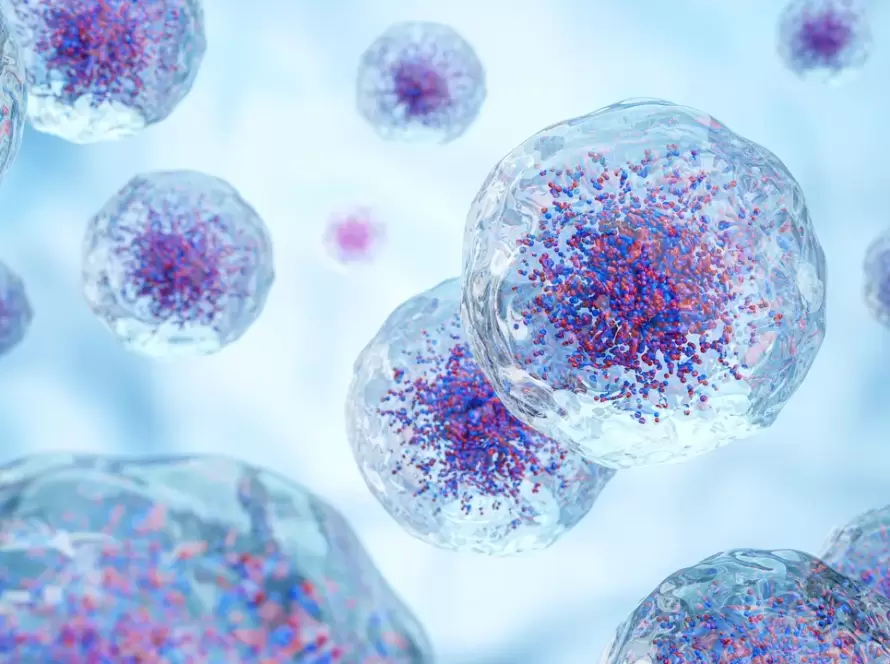OpenAI and Retro Biosciences have achieved a breakthrough in AI stem cell reprogramming. Using their new GPT-4b micro model, they boosted efficiency by 50 times and opened new doors for anti-aging research. This innovation has increased the efficiency of cellular reprogramming — a Nobel Prize–winning technique — by an astonishing 50 times.
🔬 What Is Cellular Reprogramming?
Cellular reprogramming is the process of turning ordinary human cells, such as skin cells, back into induced pluripotent stem cells (iPSCs). These cells can then grow into neurons, muscle, bone, or even new organs.

- Originally discovered by Nobel laureate Shinya Yamanaka using four proteins (the Yamanaka factors).
- iPSCs promise treatments for blindness, diabetes, and organ regeneration.
- But traditional reprogramming is slow (3–4 weeks) and inefficient (<0.1%).
🤖 How GPT-4b Micro Transforms Biology
Instead of incremental tweaks, OpenAI built GPT-4b micro, a biology-specialized model trained on:
- Millions of protein sequences
- 3D protein structures
- Biological literature
The model was tasked to design new proteins to replace Yamanaka’s SOX2 and KLF4.
Results:
- RetroSOX proteins → >30% hit rate (vs. <10% traditional methods)
- RetroKLF proteins → nearly 50% efficiency
- Combined proteins → produced large colonies of stem cells in just 10 days
🧬 Anti-Aging Side Effect: DNA Repair
Unexpectedly, the AI-designed proteins also reduced DNA damage, a key marker of aging. This means the AI solution doesn’t just reprogram cells — it also rejuvenates them.

This opens the door to:
- Safer and faster cell therapies
- Anti-aging biotechnology
- Next-generation regenerative medicine
🌍 Why It Matters
As OpenAI’s research lead Boris Power explains:
“Problems that once took years may now see breakthroughs in just days.”
This achievement highlights a new era where AI and life sciences converge, accelerating drug discovery, regenerative medicine, and longevity research.
✅ Key Takeaways
- 50x faster stem cell reprogramming with AI
- AI-designed proteins (RetroSOX, RetroKLF) outperform traditional methods
- Breakthrough verified across donors, cell types, and delivery methods
- Potential anti-aging therapy through DNA damage repair
📢 Final Thought
The fusion of AI and biotechnology may bring the biomedical singularity sooner than expected. With models like GPT-4b micro, we are entering an era where AI doesn’t just analyze biology — it designs it.
👉 Follow us for more updates on AI in biotechnology, regenerative medicine, and longevity research.





3 Comments
vorbelutrioperbir
I’m still learning from you, while I’m making my way to the top as well. I certainly love reading all that is posted on your site.Keep the aarticles coming. I loved it!
Cell
You can follow our WeChat official account:Cell AI.
Thank you for your support.Your encouragement is our greatest motivation.
quick backlinks generator
Thankyou for this post, I am a big fan of this site would like to go along updated.